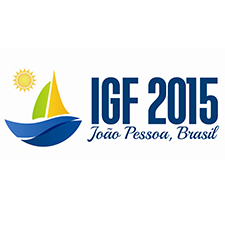The NETmundial multistakeholder declaration and the evolution of the internet governance ecosystem
13 Nov 2015 14:00h - 16:00h
Event report
This main session discussed the past, present, and future of the NETmundial Statement and its impact on Internet governance processes, with a special focus on the IGF.
Raúl Echeberría of the Internet Society gave a brief summary of the NETmundial from its inception 18 months ago in a meeting between Fadi Chehadé and Brazilian President Dilma Rousseff, through its bottom-up organisation, multistakeholder strategy, and development of the Montevideo Statement and the principles and roadmap for Internet governance. He emphasised that the outcomes of the meeting were not preordained; they were the result of discussion and complex work towards the greatest possible, though imperfect, consensus.
Demi Getschko, CEO of the Brazilian Network Information Center, presented questions for discussion by panellists, with a final opportunity for comments by in situ and online participants. Questions analysed the strengthening of the IG process, discussing a way to address issues that are not being fully addressed by the current IG ecosystem, and how to better disseminate information about where these issues are being addressed.
Recurring points included:
- The importance of the IGF for the NETmundial, for Brazil, and other stakeholders
- NETmundial as an experiment, still defining itself
- NETmundial as a space for discussion of principles to work towards enhancement of the IG ecosystem
- The need for more reference to the NETmundial statement in other forums
- The achievement of legitimacy through NETmundial’s multistakeholder composition
- The NETmundial statement as being endorsed widely, but not unanimously, showing the difficulty of addressing the diversity of views and processes
- Many presenters comments on the importance of the NETmundial process as a highlight in their personal work on IG.
As the discussion continued, presenters noted that the NETmundial statement has fostered the evolution of the IGF from a purely discussion forum to a process that will produce outcomes, adding a framework to address the issues discussed. These already include the Best Practices Forums (especially the one on violence against women), intersessional work, and the Connecting the Next Billion initiative.
Organisations, processes, and forums that form the IG ecosystem were reviewed, to analyse whether they are working according to the principles of IG as proposed in the NETmundial Statement, how their operating principles align to these principles, and whether there are efforts to adjust if necessary. Comments showed that the NETmundial statement is being mentioned in many forums, but not sufficiently. The strong relationship between the OECD and NETmundial principles was detailed, and the strong reflections between the two demonstrated. The importance of considering the relationship to multilateral and bilateral arenas was pointed out.
The discussion continued to discuss future work that needs to be initiated by the community, including institutionalisation of the IGF removing a periodic (5- or 10-year) mandate, allowing for dedication and balance of resources available to the IGF’s development, not only between North and South, but between stakeholder groups, addressing economic factors and also expertise and organisational skills.
Strong points were made to note that issues such as cybersecurity, previously only discussed in closed forums, should be opened to the general IG process.
The impact of the NETmundial process as evidenced by progress in the IGF process, as well as in greater efforts to bring human rights into wider spaces was noted, while more change is still needed. For example, greater inclusion and recognition of the work of civil society, especially in the OECD, where governments still take the lead, and often take actions that move against the NETmundial principles, particularly in the area of human rights, and the need to ensure that ‘lip service’ eventually results in real change, were noted.
The present and future cross-fertilisation between NETmundial and the IGF was a recurring theme, with that of multistakeholder participation, with the constant search for an elusive consensus, with the diversity of needs and choices being likened to the impossibility of a coherent scheme to decorate a Christmas tree with the favourite pieces from a very diverse decorating committee.
Note was taken of three additional areas that need to be addressed in particular: youth issues and inclusion, the needs of access and persons with disabilities of all kinds, and child safety online. There was repeated mention of progress, albeit slow, and insufficient for some, but with progress towards achievement and improvement in the NETmundial Statement, together with the IGF, and with hopeful anticipation for the future.
By Virginia (Ginger) Paque
Related topics
Related event

